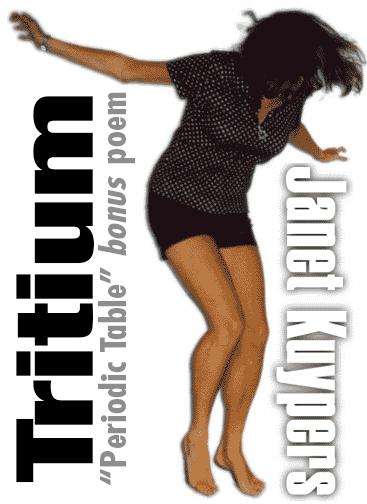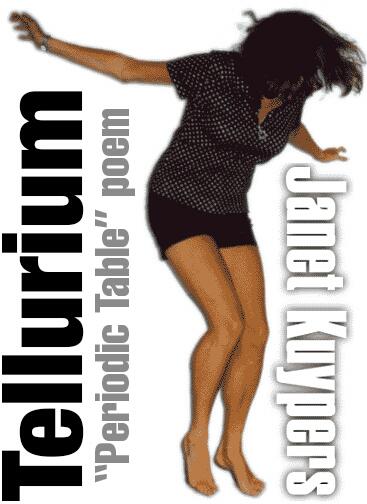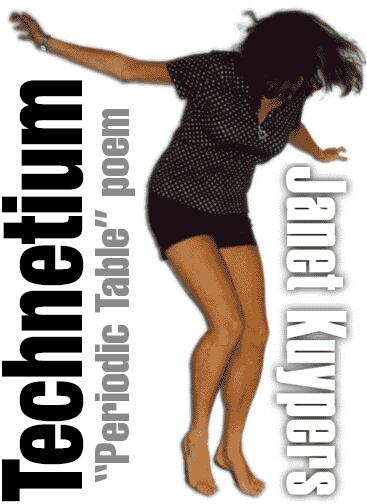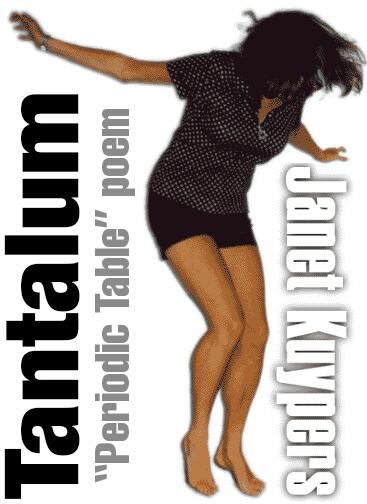Tritium
Janet Kuypers

(Bonus poem from the “Periodic Table of Poetry” series, molecule 3H
based on Hydrogen element #1, also known as hydrogen-3)
12/24/13
So my husband has this nice Fossil watch
that he wears only when we go out on nice dates now.
You see, he says he doesn’t need a watch
because he has his cell phone with him at all times,
and it always tells time in accordance with GPS.
But recently he broke down and bought another watch,
one that looks like a small child should wear it,
with a huge black band and face and neon glowing hands.
Lovely, I thought,
I thought just using the cell phone was bad enough.
So I asked about the glowing hands on his watch
(and thought about the original radium watch faces
painted by women who got cancer from radiation).
And he said no, the numbers and dials are covered in
Tritium.
And I thought, great,
another element that probably will leak
into people causing certain eventual death.
But he said no, this is safe, it’s only an isotope of hydrogen.
And I thought, oh…
So it’s just another boring element that we
Americans are using to try to make life easier
for people who grow tired of using their eyes.
I don’t think he liked my saying that.
So he said, wait a minute
(knowing how I seem to like learning about
Atomic bombs and World War Two and the like),
Tritium is used in the process of making the
Hydrogen bomb.
Hmmm.
So I read that Tritium for American nuclear weapons
was produced in special heavy water reactors.
But tritium undergoes radioactive decay
(ergo the glowing watch faces, I’d wonder,
though I’m sure he’s stress that there’s
no dangerous radioactivity in his watch –
oh wait, he said it’s “safe” radioactivity),
but Tritium’s used in “boosting”, increasing
the speed and yield of fission bombs.
And yeah, he was trying to get me to like
his child-like black glow-in-the-dark watch
by linking it with heavy water in WWII
and Hitler’s efforts to get the bomb first.
Scary to think that tactic might work with me,
but at least he’s trying to get me like
the watch that he chooses to wear.




